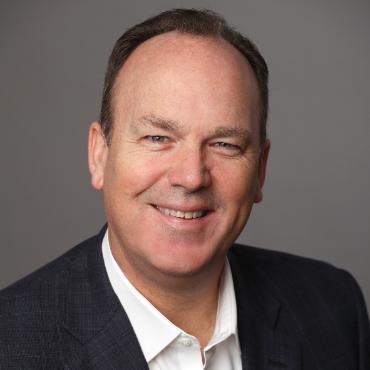The Business Behind Responsible Medicine
Cardiology/15x0:485x300/prod01/channel_34/media/albers-school-of-business-and-economics/centers-and-programs/center-for-business-ethics/campus-22-fountain.-300X500.jpg)
Meet Brian Webster: the CEO and founder of Kestra Medical Technologies, and a recent member of the CBE Advisory Board.
Brian Webster is a recent member of the Center for Business Ethics Advisory Board. Founded by Mr. Webster in 2014, Kestra Medical Technology specializes in wearable medical devices that provide real-time monitoring and intervention for cardiac patients who are at risk for life-threatening events. In this interview, Urvi Gogwekar, PMBA student and Graduate Assistant for the Center, asks Mr. Webster about these products, Kestra Medical, and his time as a student at Seattle University.
Brian Webster, CEO at Kestra Medical Technologies and Center for Business Ethics Advisory Board Member
UG: Can you tell us more about how you entered the medical device industry and where you see your current leadership of Kestra within your career?
BW: I began my career in aerospace working for the military division of Boeing. I had a great experience there but was drawn to the patient-centered mission of the life sciences. I had heard of this very interesting company called Physio-Control and, after I explored its opportunities, I landed an entry level job. Thirteen years later I had been in various VP roles in operations, sales, and marketing. I then spent the next ten years as CEO, leading Physio, the global leader in the field of emergency medical products, such as automated external defibrillator (AED) devices. Along the way I participated in five ownership transfers, Eli Lilly to Bain Capital, Bain Capital to the publicly-traded Physio-Control, Physio to Medtronic, Medtronic to Bain Capital, and eventually Bain Capital to Stryker. Each of these transitions provided opportunities to learn how to build a business, both domestically and internationally.
Before we sold Physio to Stryker, we spun out some exciting new technology which then became the foundation for Kestra Medical Technologies. Those experiences building, integrating, divesting and building again at Physio-Control taught me how to build a start-up company. Now at Kestra we have an opportunity to build this really cool company that is in the business of protecting at-risk cardiac patients. We could not have a more powerful or compelling mission.
UG: Data analytics and artificial intelligence seem to have taken the world by storm. How does Kestra’s focus on remote patient monitoring technology utilize advances in these areas without compromising data privacy and security?
BW: Continuous monitoring of ambulatory cardiac patients who are trying to live normal lives produces an incredible amount of data. That data has to be transmitted, filtered and interpreted to be useful for patients and the clinicians who are providing care. We have developed sophisticated algorithms that accomplish this. Our cardiac device, unlike an implantable defibrillator, is essentially an external, “wearable doctor” that can detect and respond to heart arrhythmias and other serious cardiac events. Our system monitors, continuously evaluates, provides a diagnosis and then delivers life-saving therapy as required. All of this is done automatically, quickly, and without human intervention. Along the way, Kestra’s systems utilizes state-of-the-art cyber security and data privacy techniques so as to protect patients’ rights. At every step we make careful assessment and craft our own policies for ensuring highest standards in these areas. We balance these steps knowing that the ability to provide real-time feedback to patients and clinicians about the ongoing recovery from a serious cardiac event is a powerful way of empowering patients and health care providers to manage their health. The data we gather and analysis we perform is instrumental in designing a product that can advance the health of patients at the right time, in the right circumstances, in the right manner.
UG: As a CEO of an innovative medical solutions company, how do you weave in a concern for ethics in to your leadership?
BW: Ethical management is extremely important on two levels. First, I face the normal ethical considerations that any CEO would face. How do we build the trust of our investors and customers? How should we demonstrate proper respect to employees? How do we remain faithful to the legal requirements of our business? What are the best ways to create a diverse, inclusive company? These are difficult questions, to be sure, but ones that I grapple with routinely.
Second, in the field of medicine you have an entirely unique set of ethical challenges related to the care of patients. For example, we constantly have to ask ourselves at Kestra whether the risks associated with our products are acceptable. Almost all medical interventions involve a risk. In the life sciences field there is no external body that defines risk tolerance, so it is up to us to set those standards. Although our products pass through multiple risk assessment criteria, understanding and deciding on where to draw the line and what could be an acceptable amount of risk to a patient is extremely important. Do we draw that line from the perspective of doctors? Patients? The families of patients? Public health officials? These are extremely difficult decisions that cut to the core of our mission of patient care. A related problem is how a company like Kestra should respond to a problem after a product has entered the market. Knowing how and when to respond to an unexpected health- or safety-related problem is something about which we pay close attention. We therefore have to continuously monitor our products and work with health care providers, our regulators and patient groups to remain on top of any unforeseen issues.
UG: To what extent was your approach to ethics shaped by your time at Seattle University?
BW: I was largely introduced to the breadth of ethical considerations facing business while pursuing my master’s degree at Seattle University. The curriculum design and class discussions that centered on real-world case studies made me look at every problem—whether in management, finance or accounting—through an ethical lens. Today, ethics continues to play a key role in my everyday life as the CEO of a life sciences company.
January 6, 2019
